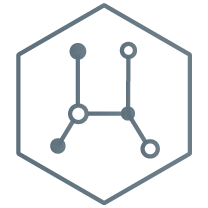Project Description:
Biofilm-producing bacteria are among the leading human pathogens, contributing to major health and economic burdens worldwide. Pathogenic Mycobacterium strains cause a number of human diseases, including tuberculosis (TB) which is second only to HIV/AIDS as the greatest killer due to a single infectious agent. With the increase in multi-antibiotic drug-resistant TB strains worldwide, the development of alternative strategies to mitigate TB is of global interest. Naturally occurring bacterial control agents such as bacteriophages (viruses that infect and destroy bacteria by lysis) and their gene products provide promising prospects for manipulation to enhance the destruction of mycobacteria. The goals of this collaborative BDSI project include 1) using molecular, biochemical, and biophysical approaches to investigate bacteriophage proteins that may increase phage release from bacterial cells, or increase bacterial destruction by promoting bacterial lysis, or disrupt an extracellular component of bacterial cells to make bacteria more sensitive to antibiotics, and 2) using microfluidics technology in combination with advanced imaging and computational solutions to determine how changes in environmental conditions impact the efficiency of phage infection and bacterial lysis. Collectively, we expect these studies to contribute to an understanding of the functions of novel bacteriophage proteins and their potential use as biocontrol agents to mitigate the impact of biofilm-producing pathogen





